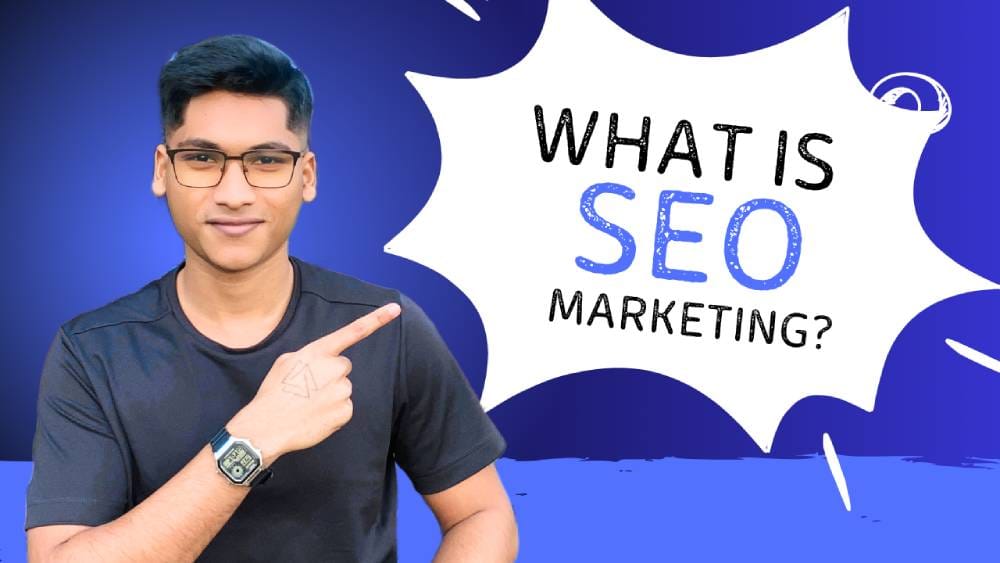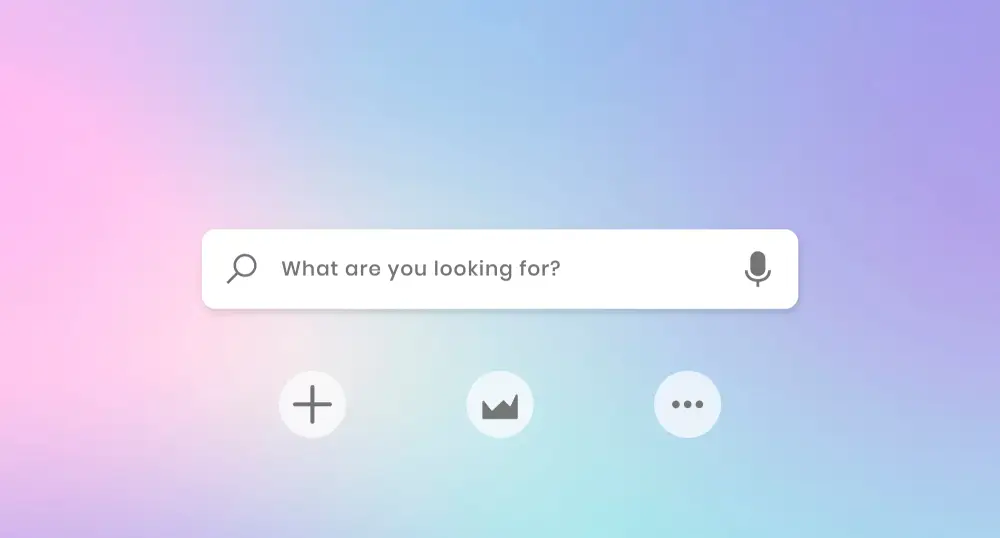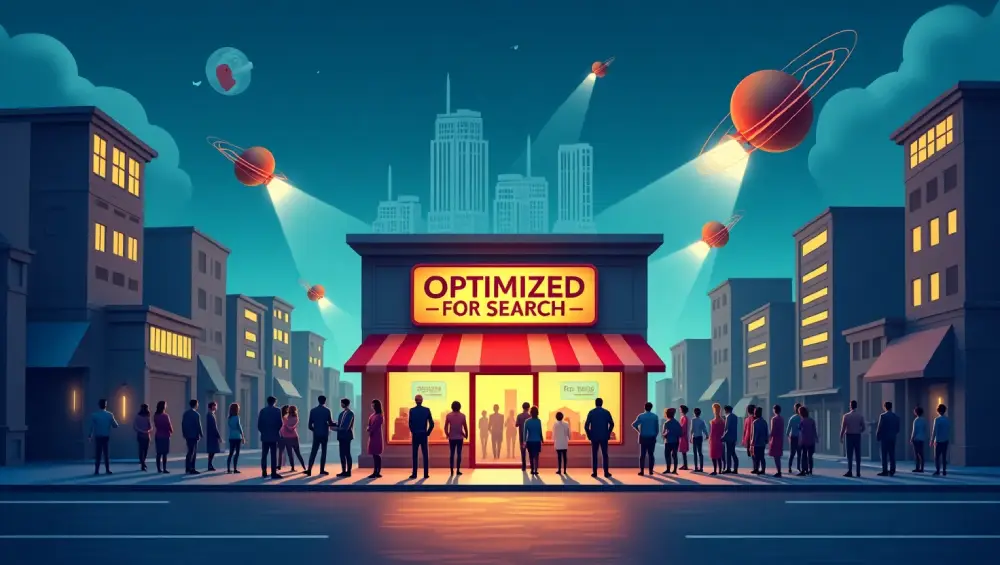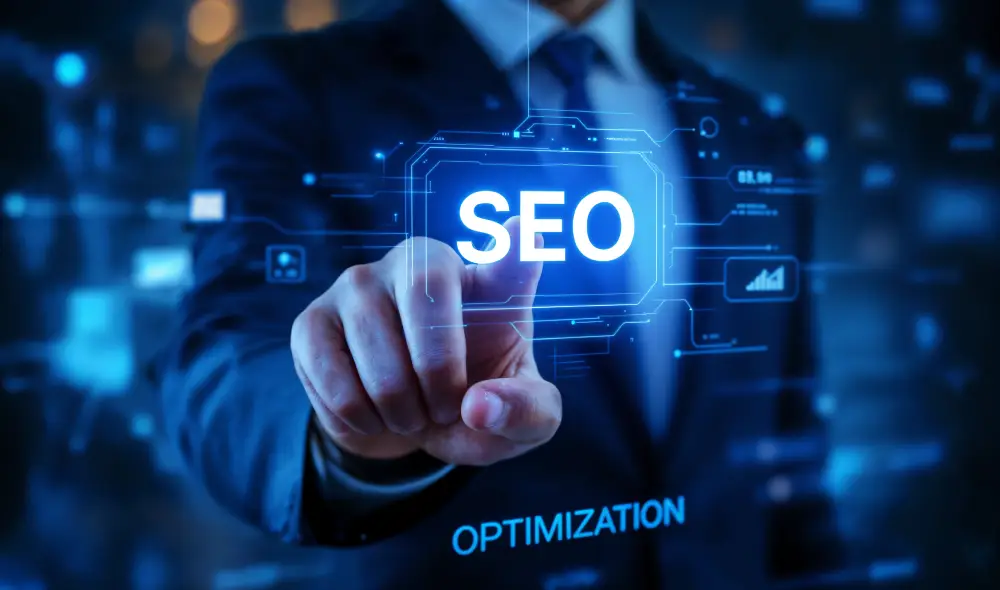If you’re reading this, chances are you’re trying to figure out what is SEO marketing and all about it. Even i had the same question back in 2017.
Maybe you heard someone mention it in a meeting, or you’re just curious about how websites magically show up on the first page of Google.
Well, let me tell you something: it’s not magic, it’s SEO.
When I first started learning about SEO honestly I felt overwhelmed by all the terms and strategies. But once I broke things down into simple steps, it all began to make sense.
So today, I’m going to share everything I’ve learned about SEO marketing and how it actually works, in the simplest way possible.

What is SEO Marketing?
SEO basically stands for Search Engine Optimization. In simple words, it’s the process of making your website more visible on search engines like Google and Bing.
Just think that Google is a big library and your website is a book. SEO is the process of making your book easier to find among millions of others and it’s as simple as that.
But technically, People do SEO for all types of Search Engines. It could be Google itself, YouTube or even LinkedIn. SEO is everywhere!
The goal of SEO Marketing is to bring your business higher when people search for things related to your services or content.
So that you get the brand visibility and more organic traffic. It’s also cheaper than other marketing strategies.
Sounds interesting right? Let’s learn more about SEO!
Table of Contents
How Does SEO Actually Work?
SEO works by improving different parts of your website so search engines can crawl it and understand it better.
When your site is well-optimized, search engines can figure out what it’s about, and they’re more likely to show it to people who are searching for similar topics.
Here’s a quick overview of how it all comes together:
- You make good quality content for you website
- Upload it with good SEO optimization
- Search engines will crawl your site (like robots scanning pages).
- They will index your pages (saving and organizing them).
- When someone searches something, the search engine decides which pages are most relevant.
- It shows the best results on the first page.
Your job? Make sure your website contains high quality contents and well optimization.
Well let’s talk about more technical and practical stuff like what you have to do in order to optimize the site.
Key Elements of SEO
There are three main parts of SEO. If you optimize these three parts you are good to go.
1. On-page SEO
is everything you do on your website to make it better for search engines and users. Examples:
- Using the right keywords
- Writing high-quality content
- Adding titles and headings
- Optimizing images + Alt text
- Internal linking (linking between your own pages)
- Adding schema markup ( Advance SEO )
2. Off-page SEO
This is what happens outside your website to improve its reputation and trust.
Main example:
- Backlinks: When other websites link to yours. It’s like getting a thumbs-up from others online.
3. Technical SEO
This focuses on how well your site runs behind the scenes. It helps search engines crawl and index your site more easily.
Examples:
- Fast loading speed
- Mobile-friendliness
- Secure connection (HTTPS)
- XML sitemaps

How Do Search Engines Work?
Search engines like Google use software/crawlers called “bots” or “spiders” to crawl your whole website. They scan the site and follow links, collect data, and store it in a giant database called an index.
Then, when people type something related to your content into Google, it pulls the most relevant pages from that index database.
The search engine uses a special formula (called an algorithm) to decide which pages are the most helpful and trustworthy.
👉Learn more about Search Engine Algorithms
That’s why good SEO is so important – it tells the algorithm, “Hey, this page is helpful, rank it higher!”
If your content is not optimized search engines like google or bing won’t understand your website and won’t put it in the first page.

Why is Search Engine Marketing Important for a Business?
Because almost everyone uses search engines. Even though you are here because you searched about SEO, Right?
If people can’t find your business online, you’re missing out on organic traffic, leads, and sales. Think about this: when you want to buy something or learn about a topic, what’s the first thing you do? You Google it.
Here are some benefits of SEM for a Business:
1. Brand Awareness:
- Search Engine Marketing strategies like SEM or SEO bring your business visible to your audiences which is crucial for your brand awareness.
- Increasing brand visibility means more customers are finding your business online and learning more about it.
- If your business appears in the SERPs which is gonna increase your brand trust also more traffic.
2. Organic Traffic and Conversions
- SEM helps to attract the right audience for your business like location, ages, gender etc.
- With PPC ads, businesses can target very specific audiences according to their customer persona. Best thing is you only pay when someone clicks on the Ads.
- With best SEO practices can improve a website’s conversion rate like better structure of the website, Good content with better UI, Good performance or Mobile friendliness etc.
3. Low Cost Marketing
- SEM’s paid strategy is much cheaper than other digital marketing Ads strategies.
- Like PPC ( Pay Per Click ) means you only pay when someone clicks your Ad.
- SEO is basically free, Just optimize the website content how search engines like Google are suggesting to optimize.
Paid vs Organic Search: The Key Difference
You might have noticed that some search results have a little “Ad” or “sponsored” label next to them, those are paid search results. Businesses pay search engines to appear on the top.
Organic search results are FREE. They show up naturally when your SEO is done right.
Here’s a detailed comparison:
| Feature | Paid Search (SEM) | Organic Search (SEO) |
| Definition | Paying to appear at the top of search results | Earning your spot through optimization and content |
| Cost | You pay every time someone clicks on your ad (Pay-Per-Click) | No cost per click, but takes time and effort |
| Speed of Results | Fast – you can appear at the top instantly | Slower – takes weeks or months to see big results |
| Lifespan | Only works while you’re paying | Keeps working long-term once you rank |
| Click Trust | Some users avoid ads, so click-through rate may be lower | Higher trust and better click-through rates for top organic results |
| Control | Full control over which keywords you target and how your ad looks | Less control – rankings depend on Google’s algorithm |
| Ideal for | Quick traffic, promotions, product launches | Long-term growth, brand building, authority |
So, Which One is Better?
Honestly, both have their place.
- If you want quick traffic or immediate results, go with Paid Search (SEM).
- If you’re aiming for long-term growth and sustainable traffic, SEO is the way to go.
But the best strategy? Use both together. Start with paid ads to get fast traffic while you build your SEO in the background for future success.

Benefits of SEO in Digital Marketing
In digital marketing, There are many ways to promote a business or brand but SEO is one of the most powerful parts in digital marketing. Here’s why:
- Cost-effective: You don’t pay for every click. If you’ve done SEO right on your website then traffic will automatically come.
- Long-term impact: Once you rank on the top results it’s gonna stay there for a longer time. Also traffic will still be coming even after you stop working on it.
- Better user experience: SEO improves your website’s structure, UI and content quality. Which means your audience will get a better experience naturally.
- More traffic: People are too lazy to go to the second page of Google. They click what’s in the top. That means Higher rankings = more visitors.
- More leads and sales: When people find you easily, they’re more likely to buy from you. Because you have more brand trust because people found you on the first page.
- Builds trust: People trust Google’s top results.
Who Should Use SEO Marketing?
SEO is for anyone who wants to grow online. That includes:
- Small Business Owners: If you run a local small business like a bakery, gym, or repair shop, SEO can help people in your area find you quickly when they search for your service.
- Bloggers and Content Creators: Writing blogs or creating videos? SEO helps your content get discovered by people who are interested in your topics.
- Ecommerce Stores: Selling products online? SEO brings in shoppers who are actively searching for what you offer. More visibility = more sales.
- Freelancers and Consultants: Whether you’re a designer, coach, writer, or marketer, SEO can help potential clients find you instead of you chasing them.
- Local Service Providers: Plumbers, electricians, Dentist, tutors, personal trainers, and other professionals can attract local customers through local SEO strategies.
- Startups and Entrepreneurs: If you’re building a brand from scratch, SEO is a smart and affordable way to get traffic and build awareness.
- Nonprofits and Educational Sites: Want more people to engage with your mission or resources? SEO can help you spread your message further.
In short: if you have something valuable to offer online and want people to find it—SEO is for you. It doesn’t matter if you’re just starting or have been doing it for years, there’s always room to grow through SEO.
Google’s SEO Resources
The best place to learn about SEO is straight from Google. Here are a few free and reliable resources:
- Google Search Central – A beginner-friendly SEO guide by Google
- Google Search Console – A free tool to monitor your site’s SEO performance
- Google Analytics – Helps you understand your visitors and traffic sources
Final Thoughts
SEO marketing might sound technical or complicated at first, but it’s really just about helping people find you online. With time, practice, and a little patience, anyone can learn it – even if you’re just starting like I did.
Remember: SEO isn’t a quick fix. It’s a long game. But if you stay consistent and keep learning, the results will come. I hope this guide made things clearer for you. Now it’s your turn to apply what you’ve learned and start growing your online presence!
Let me know if you’d like me to create more beginner-friendly content like this. You’re not alone in this journey. Let’s grow together!
Which tool is best for SEO?
Well, There are many tools specially for SEO practices. It really depends on you but you can consider using Ahrefs, Ubersuggest and Semrush for on-page optimization, competitor analysis, SEO audit or keyword research. To write content using Ai tools you can consider ChatGPT, Claude or Jasper Ai.
What is the golden rule of SEO?
In short i would say: Make high quality content first then optimize it for keyword intent. Then get backlinks from related topics and always update your content. Don’t ignore the Technical SEO like page speed, mobile friendliness etc. These are the main pillars for a web page to rank higher on search engines.
What are the 4 types of SEO?
Main 4 types of SEO are: 1. On-page SEO , 2: Off-page SEO, 3: Technical SEO and 4: Local SEO ( Optimzing Google Business Profile ). All of these work together to rank a website higher in the search engines.
What are the 3 C’s of SEO?
In the SEO field the 3 C’s are Content, Code and Credibility



